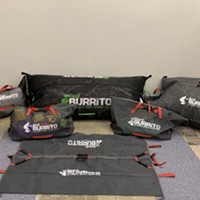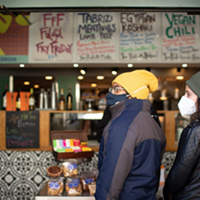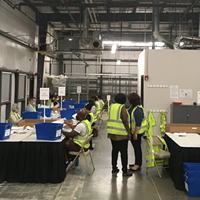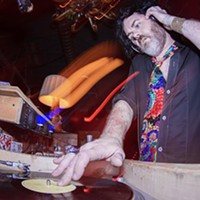I initially intended to write about statewide police abuse. I was angry when a Charlotte-Mecklenburg police officer pled guilty to photographing underage girls' in their underwear without their knowledge. Girls who were taking part in the Explorers program. Disgusting.
But as I researched other instances of police abuse throughout North Carolina, one city popped up more than others, even Charlotte: Durham.
Since 2013, The Bull City has seen at least five officer-involved shootings, two of which were very high profile.
In November 2013, officer Samuel Duncan picked up 17-year-old Jesus Huerta, who had an outstanding warrant for trespassing. He was handcuffed with his hands behind his back and put into the back seat of the police car. He was later found dead from a gunshot wound to the face, with his hands still handcuffed behind his back. The video camera inside the police car was not recording, due to a battery-saving mechanism police must manually override. Duncan failed to do this. According to reports, he also failed to find the .45 caliber (fairly large) handgun police say Huerta shot himself with, when he frisked Huerta before putting him in his car. Huerta's death was ruled self-inflicted after internal and state investigations. Duncan did not face criminal charges, but he was suspended for 40 hours without pay and forced to take a remedial class on how to transport prisoners. Protests calling for justice in the Huerta case were met with police in masks, vests and tactical gear and tear gas.
In July 2013, a Honduran man named Jose Ocampo was stopped and questioned when police were investigating a non-fatal stabbing. Police noticed a knife in his back pocket. According to a private investigation, police called attention to the knife and Ocampo attempted to present the knife to them, eyewitnesses said, handle-first when they shot him in the chest and killed him. No criminal charges were filed against the officers after internal and state investigations.
Like Charlotte, Durham has a police Citizens Review Board that is supposed to monitor complaints against the police and investigations into officer-involved shootings. And like Charlotte's board, it's ineffective. The city manager's office essentially described it as an advisory group with no binding authority to the city Human Relations Commission last January, stating that even if members found an internal affairs investigation insufficient, they couldn't hold their own hearing.
The Human Relations Commission was deployed by the mayor to investigate Durham police after a group of citizens appeared at a City Council meeting and complained about profiling and other racist behavior. It wasn't the first time racism had been an issue. In June 2013, Assistant Police Chief Winslow Forbes filed a complaint with the federal Equal Employment Opportunity Commission alleging that he had been passed over for promotion because he objected to racist statements and actions by Chief Jose Lopez. Other allegations of Lopez being a classy guy include a complaint from last August that he joked that an innocent bystander wounded in a drive-by deserved it, because he was a public defender (he wasn't).
Lopez has denied allegations of racism and the legitimacy of statistics from a study by UNC Chapel Hill, which shows major racial disparities in traffic stops and searches.
According to a 2012 study by North Carolina Advocates for Justice, Durham County has the highest instance of racial disparity in the state when it comes to incarceration. In Durham, blacks are nearly nine times more likely to be incarcerated for criminal conduct than whites. Mecklenburg's ratio, while nothing to brag about, sits lower than our neighbor to the east, at 6.9 to 1.
Early last month, Indy Week reported that Durham police officers had been making up phony 911 calls to enter the homes of citizens without a warrant. Officer A.B. Beck testified in court that he gained consent to enter the defendant's home after telling her someone had called 911 and hung up from her residence and he needed to come inside and make sure everyone was OK. Once inside, he found marijuana and she was charged. During his testimony, Beck said this was a common department practice in cases of alleged domestic violence. Ten days later, Lopez sent an internal memo explicitly banning the practice.
Speaking of...
Latest in Trouble Hunter
More by Erin Tracy-Blackwood
Calendar
-

Charlotte Wine + Food Week Presented by Truist @ Charlotte, NC
-
 Charlotte Knights vs. Syracuse Mets @ Charlotte Knights
Charlotte Knights vs. Syracuse Mets @ Charlotte Knights -

Charlotte Wine & Food Week’s Annual Sake Dinner at Mizu @ Mizu
-

Hands On Cocktail Class Featuring Gin at DTR Southpark @ DTR SouthPark
-

Wine & Paint @ Blackfinn Ameripub- Ballantyne
-
A Beginners Guide To Fishing 1
-
CL and HuffPost team up for DNC/Occupy Charlotte coverage 2
Charlotte officials negotiate what to do about its Occupy protesters as the DNC gets closer.
-
10 best movie striptease scenes
Salma Hayek, Jessica Alba and more.















